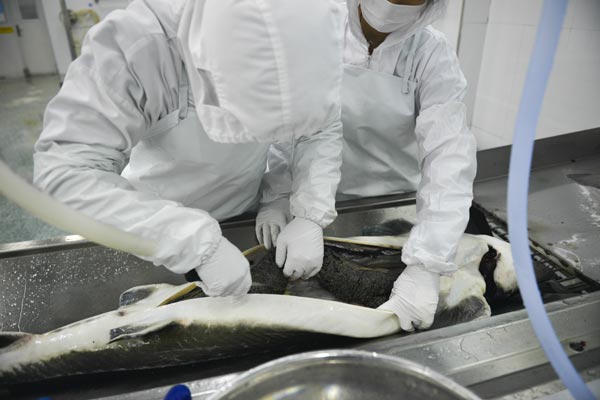'Black gold' a China treasure
By Zhang Kun ( China Daily ) Updated: 2014-12-06 09:34:37
 |
|
Kaluga Qeen carviar, grown in the farm of Qiandaohu in Zhejiang province. Photo provided to China Daily |
It takes at least eight years for a sturgeon to bear eggs. A sturgeon produces on average one-tenth the amount of eggs of its own body weight. The meat is often exported, mostly to Russia, says Shi Wei, a team leader in the caviar processing factory for Kaluga Queen in Quzhou of Zhejiang province.
The eggs are washed-no chemicals are used, only clean cool water-and then mixed with small amount of salt, and packed for international shipping. The whole processing procedures take place in less than 20 minutes, to keep the caviar fresh.
In three years' time Kaluga Queen plans to double its production to 60 tons a year. As global production rises, Han hopes the price will drop to a reasonable level and a healthy market will be developed home and abroad.
Chef Crandall is confident about Chinese consumers' interest in caviar. It's much like wine, he says. A few years ago people in China would only order wines from the most acclaimed vineyards but now they drink a greater variety. He believes the same thing will happen with the consumption of caviar.
Actually, some Chinese restaurants are already using caviar. Da Dong, for example, is an important client of Kaluga Queen. Caviar is served with its crispy duck skin, among other fine dishes.
|
|
|
|
|
|
|
|

























 Raymond Zhou:
Raymond Zhou: Pauline D Loh:
Pauline D Loh: Hot Pot
Hot Pot Eco China
Eco China China Dream
China Dream China Face
China Face






